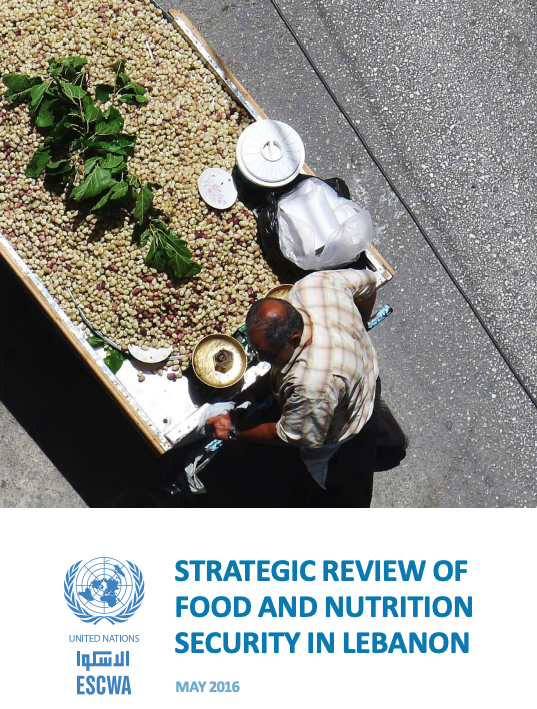The 2030 Agenda for Sustainable Development has set Zero Hunger as one of the world’s major development goals. As countries around the world step up efforts to achieve their individual targets, Lebanon is also working towards the implementation of Agenda 2030 under particularly challenging circumstances caused by the spill-over of several regional crises. The Government of Lebanon and its concerned Ministries together with national and international partners are collaborating to address the country’s food security and nutrition challenges and to progress towards the implementation of Agenda 2030’s sustainable development goals.
To support these efforts and to study the current situation with a view towards enabling the prioritization of policy reforms, the United Nations Economic and Social Commission for Western Asia (ESCWA) and the World Food Programme (WFP) joined forces to commission Triangle to conduct an in-depth analysis of the country’s food security and nutrition context. This comprehensive review builds on existing studies and research on food security and nutrition in the region and was conducted in a participatory manner giving a voice to numerous stakeholders. It aims to support and broaden the ongoing discussion on how to increase food security and on what needs to be done by all involved stakeholders to reduce long-term vulnerability and improve overall nutrition in Lebanon.
Triangle’s report highlights the urgent need for sustainable pro-poor economic policies, market reforms, and improved social safety nets to enhance food and nutrition security in Lebanon. The analysis found that despite Lebanon’s relatively high production potential, actual agricultural production remains limited due to market inefficiencies, import dependency, and other structural issues. The country imports between 65 and 80 percent of its food needs, leading to vulnerability towards price changes and impacting public budgets. Additionally, the influx of Syrian refugees has exacerbated existing food and nutrition security challenges, with a significant portion of both the refugee and Lebanese populations experiencing food insecurity and micronutrient deficiencies. The recommendations put forth in the report include the development of a comprehensive, multi-stakeholder Food and Nutrition Security Strategy, transitioning from subsidies to targeted social programs, and improving agricultural productivity and market access.
